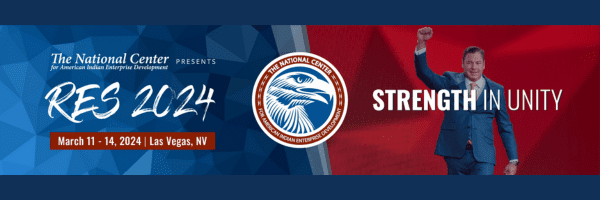Tribal Organizations – Building for Generations to Come
I’ve recently come back from RES2024, a conference focused on tribal companies, both in the federal and commercial space. The conference had over 4,500 attendees from what had to be every state and every type of company. While my world is all GovCon, it was interesting to see the depth and breadth of the different types of tribal companies that some of the Super 8a’s have.
As a participant in many, many DOD-focused conferences, I found this one to be a completely different perspective. After reflecting on my experience, I came up with these notable differences.
Longevity. A Tribal company is not building to pump and dump via an exit to PE within the next 3-5 years. They are building companies to last generations. When you build a company for generations, you take a much longer view of your investments, of your activities, and of your timelines. This impacts everything. The investments you make, the attention you give your employees, and the technology you use. So many companies in GovCon are building for the sale in <5 years and so few are building for sustainability.
The Why. Many founders start their companies to solve a hard problem, build a company, and create wealth. Tribal companies do everything in service to their tribes. Every business decision is made with a focus on how it will impact their tribes, what benefit they may gain, and what they may have to sacrifice. There is no wavering or questioning on why they do what they do.
Environmental. Nearly every company I came across had at least one company that services the environment in some way. Sustainability, global environmental impact, and conservation. All had environmental considerations.
Diversification. I have two companies and that can be exhausting. Some of the tribes have 20-30-even 40 different companies within their holdings. They can be as varied as different areas of capabilities (i.e. from cyber security to facilities to manufacturing). And they can be from different industries (gaming, federal contracting, healthcare, gas stations). The big tribal organizations have matrixes of companies crossing industries, and crossing capabilities. How they manage to efficiently run each reflects on their leadership. They have to have capable leaders managing each of their businesses, with a streamlined approach toward communication, decision-making, and reporting. They are no different than huge, global billion-dollar companies.
Size. Many of the top tribal organizations are billion-dollar companies. Even more are $500M+ in revenue. They have their hands in a lot of different pots and can exploit their size for efficiency and effectiveness.
Partnerships. Many tribes work with each other for the benefit of both organizations. They share common characteristics, common heritage, and common values. This isn’t to say that they don’t have differences, but rarely are those differences out in public, in court, or discussed openly.
Legal Status. The legal status of tribal companies is for the lawyers to discuss, but it is a notable difference versus other companies. Most doing business with the federal government waive their rights to sovereignty but there are nuances that are complicated.
Attending RES2024 for the first time provided me with valuable insights into the world of tribal companies. One thing stands out – the enduring commitment to sustainability and legacy. Tribal companies aren’t just in it for short-term gains or a quick exit strategy. They are building for the long haul, with a focus on benefiting the tribes and ensuring the prosperity of future generations.
The principles of longevity, purpose-driven decision-making, environmental stewardship, diversification, and collaboration among tribal entities all contribute to their unique strength.
About BOOST’s CEO, Stephanie Alexander
Stephanie Alexander has spent more decades than she wants to admit supporting high growth government contractors with an eye towards their bottom line. She is the CEO and founder of BOOST LLC which supports back-office functions for government contractors. She is a co-founder and Partner at govmates, a free teaming platform and technology scouting tool to connect business across the federal landscape.








